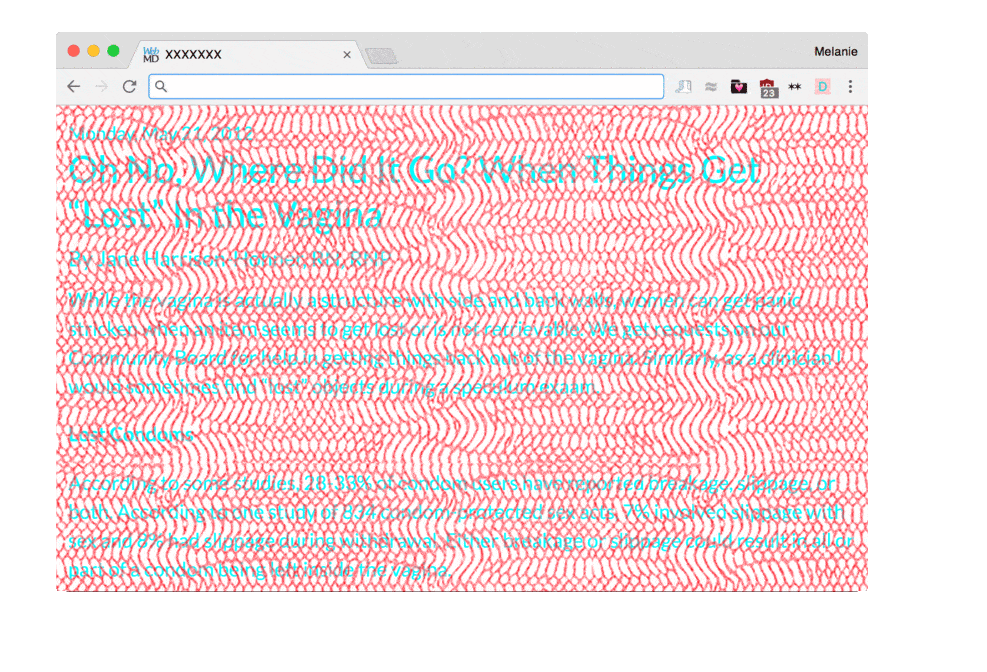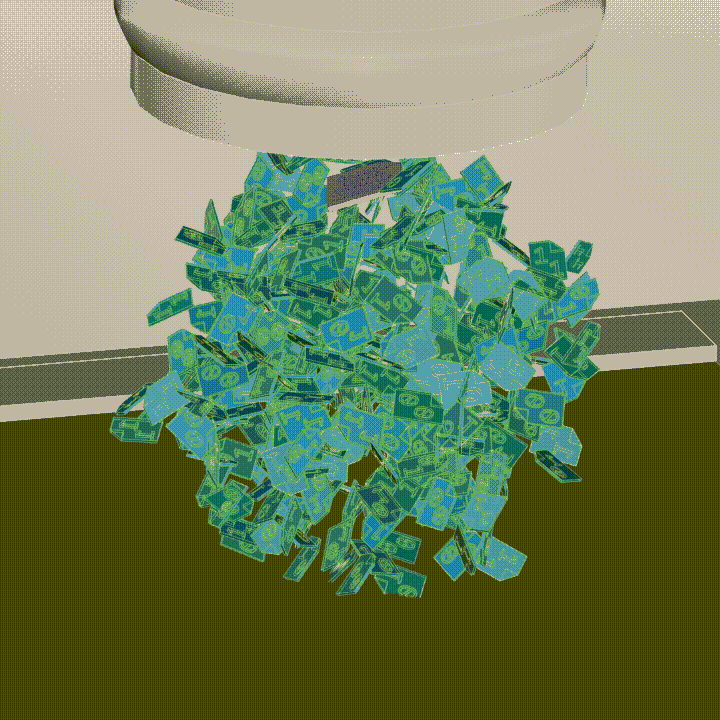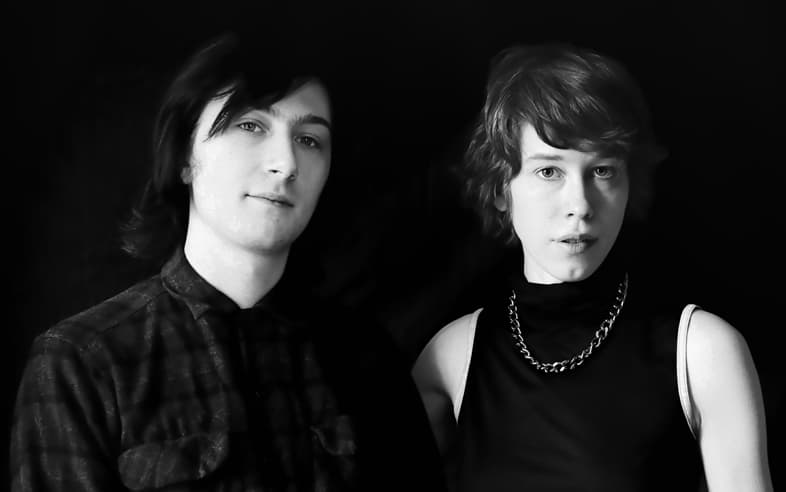MELANIE HOFF
For the first column of our bi-weekly feature here at Quiet Lunch we caught up to date with Melanie Hoff, a digital artist who currently lives in Brooklyn, NY.
J+A: Hi Melanie, it’s good to see you. Can you tell us what is exciting to you as a working artist right now?
MH: I have begun to see my work expanding into social issues. As anything that is part of the practice of living and being in a community of others and as part of a collective. My mediums have been digital ones lately mainly because the processes of our everyday lives more and more happen across digital platforms. If I want my work to meet people where they are, and to expose things about their everyday lives, I need to use the same processes that those people use to do the banalest of acts like checking their bank account or talking to their mom. You know.
J+A: So you would say your aim is to create work that is also interactive?
MH: Yes, I see my work affecting people wherever they are. If people communicated every day by making chalk drawings then I would be a chalk artist. It’s not that I am interested in algorithms inherently, I’m interested in the way algorithms change our lives.
J+A: If you had the option of living anywhere would you move? What makes you engage with your community?
MH: Thinking about this question and how it would shape my practice it seems that because I am engaging with people and human behavior in virtual space the definitive meaning of physical space changes. That isn’t to say that our physical space isn’t important just because of where we are physically. What we see every day with our biological eyes informs who we are and how we live. So for instance, if money wasn’t an option I would live in a floating house, possibly a hydraulic house, where you can go where ever you wanted and wouldn’t need land to be tethered to.
I spend the most amount of time thinking about how I engage with my closest friends and partners. Being a part of a community allows us to have our own language and ways of operating and allows us to create tools that can aid our understanding of each other and inform the way we communicate.
So for example: Right now my current partner and I have a chrome extension where we can share the same default tab. In effect allowing us both to control what we can leave behind for the other to see. This allows us to share ideas in a transparent and effective way. Either he or I can set it so, for instance, he can leave a message or a drawing or a website that I would see if I opened up my browser. The default tab allows us to leave information for the other to see.

J+A: As our virtual and physical life becomes more intertwined do you see virtual communication and behavior developing further as an extension of its physical counterpart?
MH: I like using browsing behavior as a mode of communication because what we browse is so personal. Since we spend so much time on our computers surfing the internet, the only people who know what we’re doing besides ourselves are large corporations and the government which made me think why don’t we share our virtual behavior with our close loved ones or our peers?
Aside from copy and paste, sharing links is not a seamless activity and creating this browser allows the human connection to expand further. My larger answer to this question is how I engage with my community begins with creating tools that can possibly aid our working environment or friendship and eventually expand the processes we come up with for a larger audience or a different community to participate with.

©Melanie Hoff
J+A: Do you see your work shifting or changing in any way with our current political situation?
MH: Yes I do, I think on a general level I’m really interested in the public perception of security and privacy of your data. I have two projects which deal with surveillance and political rhetoric in a consensual way. My partner in the Small Data Squad and Manila, Dan Taeyoung and I did a project in which using only a person’s name and email we collect all the information publicly available about them, package it into a report and email it back to them. Most people are shocked at how much information we are able to gather using publically available tools, which is nothing in comparison to someone who would be able to access data gathered through facebook or google’s tools. In a class led by Danah Boyd, we discovered that using only a person’s geolocation data we were able to find out who they were, where they worked, who their wife is for example.
This is all information the government and AT&T have about you. Post-election I’ve begun to focus specifically on political rhetoric and I’m making a series of thesauruses that attempt to bridge the political divide in America through language. One thesaurus is red and one is blue and both generate synonyms using machine learning algorithms. Both are trained on a large body of text and figure out semantic synonyms based on that information. The red thesaurus has been trained using only conservative literature, media and texts and the blue only liberal texts and media. The function of these thesauruses is to be a translator. I’m interested in feeding each one the same text and seeing the different words they use to interpret it.
J+A: We’re coming to an end here but it’s been great talking with you Melanie, this last question is tough. Who’s more of a true Yorker, you or Oscar the grouch?
MH: I can’t say we’ve spoken since I was three, but I think Oscar was more of a true New Yorker when he was younger. He acted as a stereotype of NY as a personality, but sadly I think that has really changed since Oscar’s heyday. In today’s New York, I think I would represent more of a true New Yorker, as someone who moved here from out of town to go to school and stayed, trying to hustle.
J+A: So you’ve moved into Oscar’s trash bin, raised the rent and he’s now a Bowery bum?
MH: Haha, yes, the rent on trashcans has gone way up.
You can check out her latest project Partisan Thesaurus here. Or you can stay up to date with Hoff’s work at https://melanie-hoff.com/
Follow us for more artists we know bi-weekly @JaredxAlannah on Instagram and right m**f**in here,
and stay up to date on all the new projects Melanie has up her sleeve.
For more information about each artist visit: Jared & Alannah

Artist duo Jared Oppenheim and Alannah Farrell work in mediums that include painting, multi-media and installation works.
Their work has appeared in publications including Quiet Lunch, Juxtapoz, NY Magazine’s Bedford + Bowery, New York Optimist, Next, and The Wild Magazine, amongst others.
Together and separately their work has been presented and curated in London, Berlin, and in NYC. Currently, they live and work in the East Village, NYC.
For more of Jared x Alannah’s AWK Series, click here.




